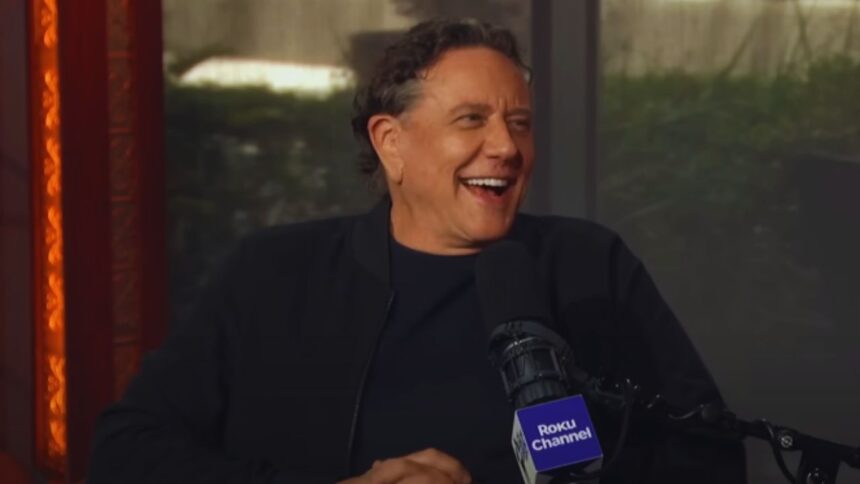Within minutes of speaking to Judge Reinhold, it becomes clear why the once-promising Hollywood actor now appears in holiday films for direct-to-DVD releases: a series of questionable behind-the-scenes maneuvers that, in Reinhold’s telling, scuttled his career. In the interview with Vanity Fair detailed on June 13, Reinhold also for whom powerful roles in the period alongside Eddie Murphy in the “Beverly Hills Cop” told how he tried to send him to leading ones was his stubborn “executive murder plot.
The major claim of Underdoin fame came in mid 1980s as he appeared in flicks such as “Fast Times at Ridgemont High” and the “Beverly Hills Cop Series”. Still, the transition from the supporting roles of a chorus boy to the leading man was not as easy as he planned. The 1988 movie “Vice Versa”, a family comedy about a boy and a man who swapped their bodies and the latter with Fred Savage, was meant to cement his status as a leading man. Regrettably, the movie was a failure in theatres, a scenario Reinhold blames on a variety of factors, one of which he notes as a result of what he states as a conspiracy by the then Columbia Pictures CEO, David Puttnam.
‘Beverly Hills Cop’ star Judge Reinhold says ‘executive murder plot’ crushed career https://t.co/QTZOEv4Cjd
— lohud.com (@lohud) June 25, 2024
“It was basically an executive murder plot,” he said from his home in California’s Wine Country where Reinhold, now 67, confirmed the book is authentic. David Puttnam who produced ‘Chariots of Fire’ became the head of Columbia Pictures and we all liked him because he was creative and had done indies Though not svvell as the problem with Sigelman, the main issue was about bringing down the fee of the lead actors while making the back end profits real.
In Reinhold’s view, Puttnam went for the tactic of inflating his potential success through a slashing of lead actors’ salaries a move that would birth industry friction. This approach, according to Reinhold, led the marketing of “Vice Versa” to be weak, which led to further poor box office returns. The creation of the film was further undermined by the timing that saw the release of “Vice Versa” at a time when similar body-swap films such as “Big” and “18 Again!” had swamped the market.
“The timing was terrible, and the competition was fierce,” Reinhold said. “But it wasn’t just bad luck. There were moves being made that ensured our film wouldn’t get the push it needed. It was a strategic takedown.”
Conversations concerning Hollywood studios’ sometimes opaque decision-making procedures and how they affect actors’ careers have been rekindled by Reinhold’s open disclosures. The actor, who has over the years kept a consistent but low-key presence in television and movies, voiced a mixture of resignation and dissatisfaction over the experience.
“We were disappointed because we had such high expectations for ‘Vice Versa.'” He thought, “It was a fun movie with a great cast, but it never stood a chance.” “Hollywood is a tough town, and sometimes it feels like the odds are stacked against you no matter how hard you try.”
Reinhold’s career has included many well-loved performances despite these failures, and he is still regarded as a respected member of the industry. His account is a sobering reminder of the intricate relationships and power struggles that exist in Hollywood, where skill and labor alone are not always enough to achieve success. Politics and timing can play a major role.
After reading Reinhold’s story, viewers and industry insiders will have a deeper understanding of the difficulties actors confront while attempting to negotiate the frequently perilous seas of show business. Judge Reinhold views this information as a long-overdue validation of his dashed hopes and a monument to his unwavering fortitude, even if it is unclear whether it will prompt more investigation or reform in the film industry.
Read More: FansGossip






